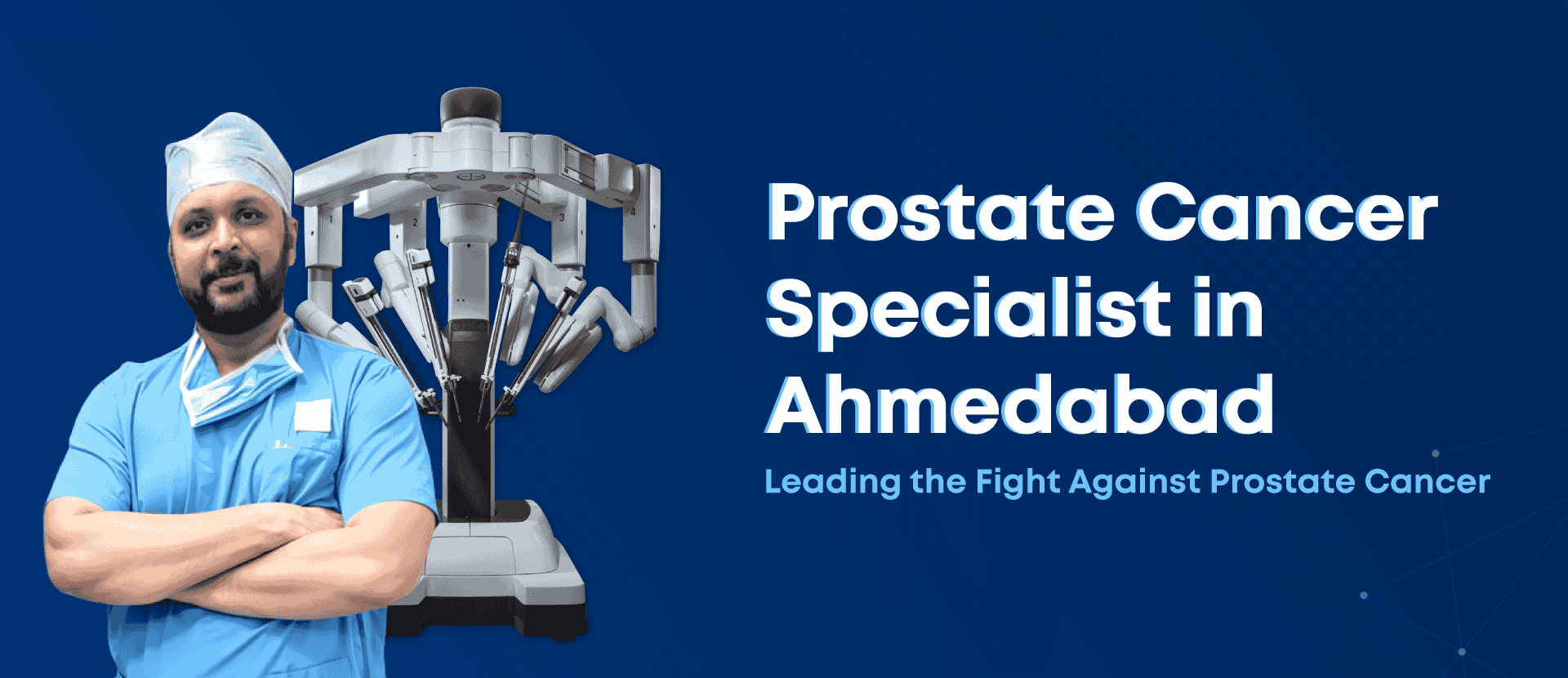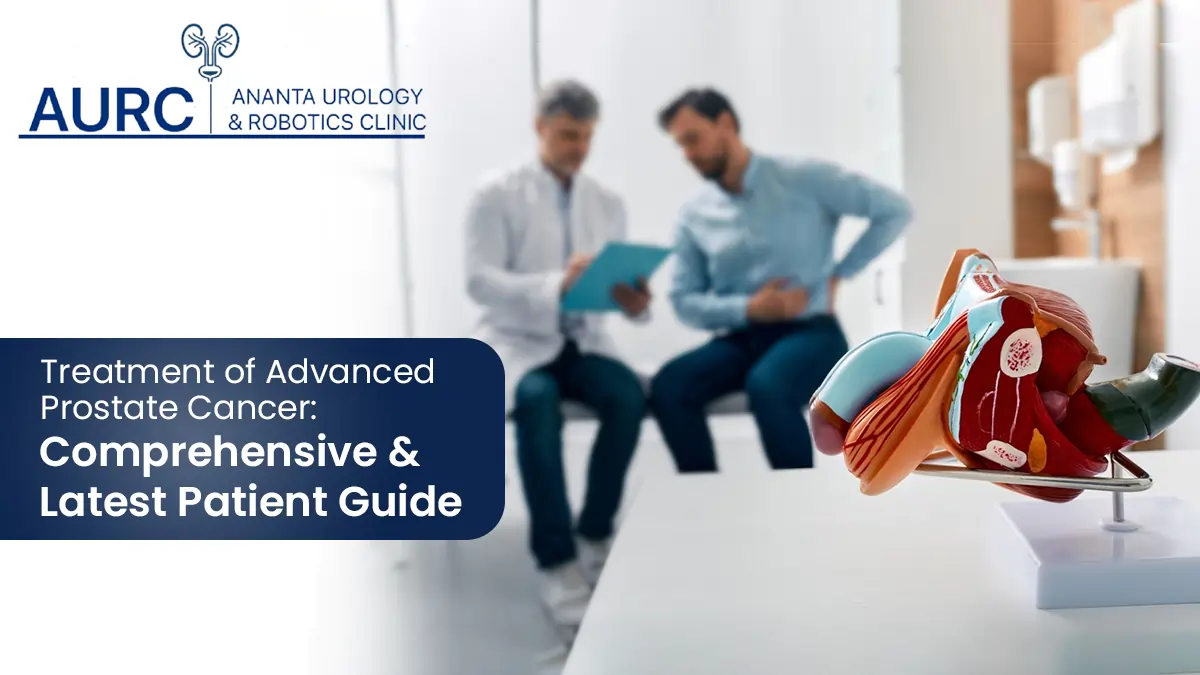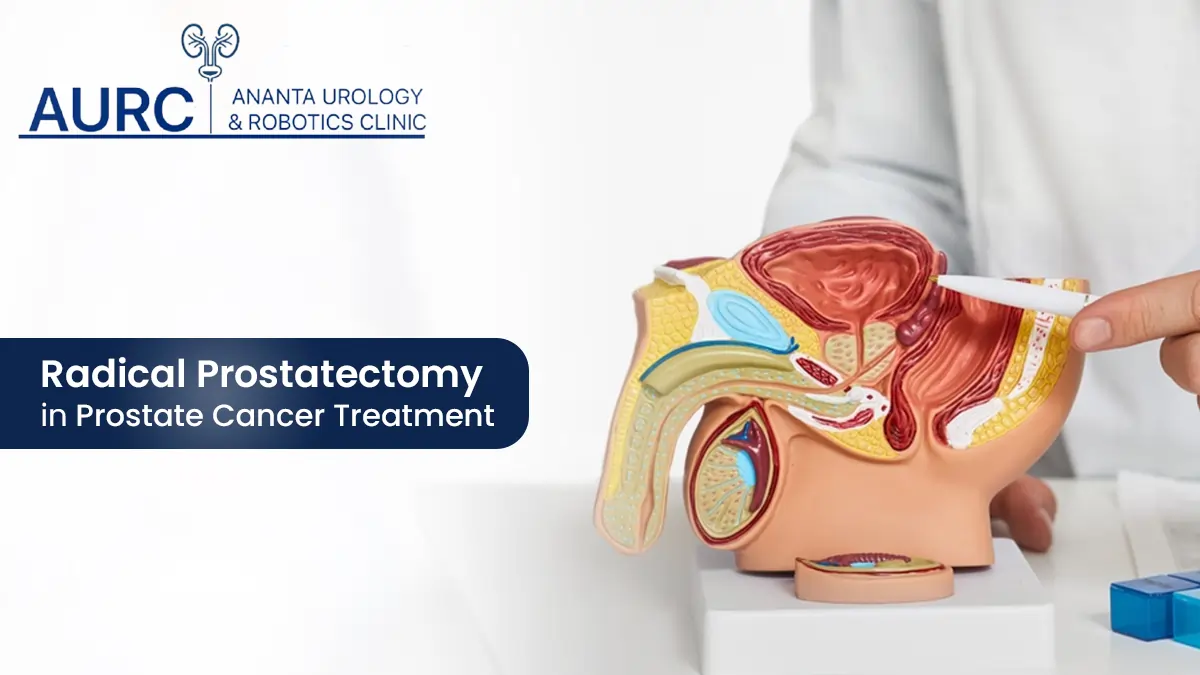Dr. Rohan Patel - Top Prostate Cancer Specialist in Ahmedabad
Prostate cancer is one of the most common cancers affecting men, often presenting with subtle symptoms that can be easy to overlook. Early detection is crucial, as timely intervention significantly improves outcomes. Men diagnosed with prostate cancer often face uncertainty about treatment options and their effectiveness. Dr. Rohan Patel, a leading specialist in prostate cancer treatment in Ahmedabad and India, combines advanced diagnostics, cutting-edge robotic surgery, and compassionate care to guide patients through every stage of their journey. His expertise ensures evidence based prostate cancer treatment plans designed to address each patient’s unique needs, offering hope and a path to recovery.

15+ Years of Unparalleled Experience
of serving patients
10,000+ Satisfied Patients
10,000+ urology patients treated successfully From all over India
500+ Successful Robotic Surgeries
Successfully performed 500+ robotic Surgeries
Awarded & Recognized
Best Robotic Surgery Video Award by American Urology Association
Top Rated UroOncologist
Highly rated by satisfied patients
Internationally Certified
American Urological Association Vattikuti Foundation
Advanced Urology
Better Living
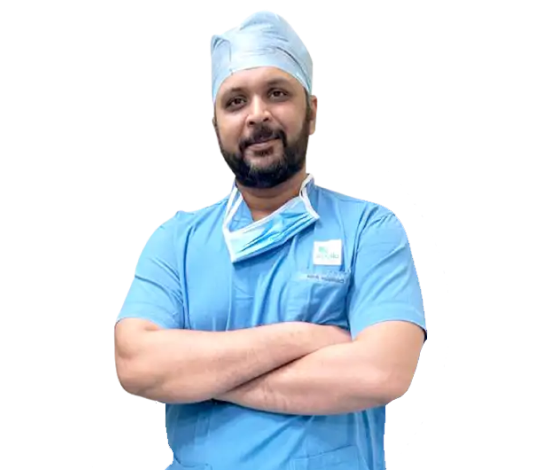
Dr. Rohan Patel's Expertise as a Prostate Cancer Specialist in Ahmedabad
Dr. Rohan Patel has over 15 years of experience in uro-oncology, making him the most trusted expert in prostate cancer treatment in Ahmedabad. He has successfully treated more than 800 prostate cancer patients, focusing on personalized care and advanced robotic surgery that meets each individual’s needs. Patients from Gujarat, Rajasthan, Madhya Pradesh, and other states choose Dr. Patel for his commitment to achieving the best results in prostate cancer treatment through advanced technology and compassionate care.
About Dr. Rohan Patel
Qualifications:
M.Ch in Urology from King George's Medical University (KGMU), Lucknow, a leading institution in India.
Training:
Robotic surgery training from top robotic surgery hospital in India- Manipal Hospital, Bangalore under Dr. Somashekhar S.P.
Prestigious Vattikuti Robotic Urology and Renal Transplantation Fellowship at Medanta - The Medicity, Gurugram, under Dr. R. Ahlawat, a pioneer in robotic urology surgery and kidney transplantation in India.
Experience:
Over 15+ years of expertise in Uro-oncology and robotic surgeries.
10,000+ Patients Treated
Certifications:
Intuitive Robotic Certificates for da Vinci Xi and Si Modules for Surgeons.
USI-AUA fellowship(USA)
Vattikuti Foundation Robotic Surgeons Council Scholarship.
Certifications



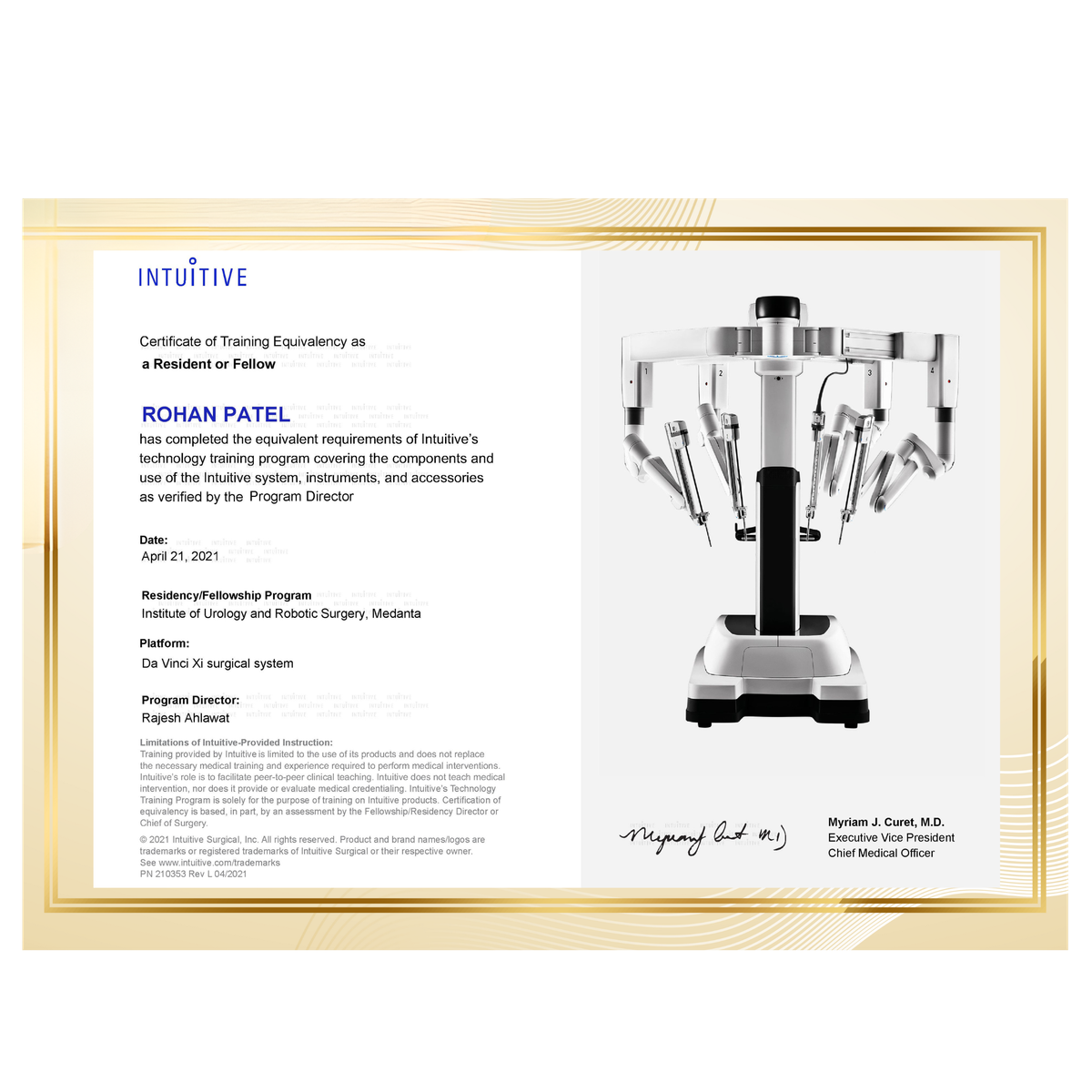



What is Prostate Cancer?
Prostate cancer occurs in the prostate gland, a small organ below the bladder that produces seminal fluid. It develops when prostate cells grow uncontrollably, forming a tumour. While some cases of prostate cancer progress slowly, others can spread rapidly. Therefore, early detection through regular screenings is essential for effective treatment.
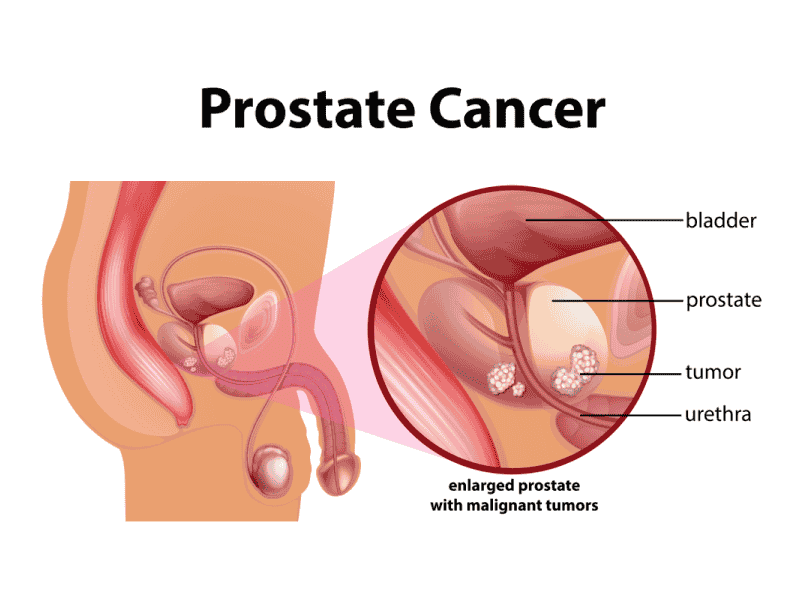
PROSTATE CANCER SYMPTOMS
Symptoms of Prostate Cancer do not show when the cancer is in the early stage. Most often, symptoms of Early Stage Prostate Cancer often overlap with the symptoms of other Benign prostate conditions like Enlarged Prostate(BPH) or Prostatitis. Upon experiencing these symptoms or signs, a consultation with a uro oncologist is essential to differentiate them. Accurate and Early diagnosis of the symptoms leads to an informed decision about which treatment to go for. Our specialists in prostate cancer accurately diagnose the symptoms and are recognized to provide one of the Best Prostate Cancer Treatments in Ahmedabad, India.
Most Common Symptoms of Prostate Cancer Include:

⦁ Pain in the pelvic region
⦁ Pain in the lower back
⦁ Frequent urination
⦁ Pain in the bones
⦁ Weak urine flow
⦁ Trouble urinating
⦁ Blood in the urine
⦁ Loss of appetite and weight
⦁ Pain while urinating
⦁ A burning sensation while urinating
⦁ Pain while ejaculating
Best Prostate Cancer Treatment in Ahmedabad
Dr. Rohan Patel is a leading expert in prostate cancer treatment in Ahmedabad and India, with over 15 years of experience. At our UroOncology Centre, we offer advanced robotic surgery for prostate cancer using the Da Vinci system, ensuring quick and precise procedures with minimal damage to healthy tissues.
Our skilled uro-oncologist carefully diagnoses and tailors treatment based on the cancer's stage, providing unmatched precision and results in managing this complex condition.
Robotic Prostate Cancer Surgery/Radical Prostatectomy
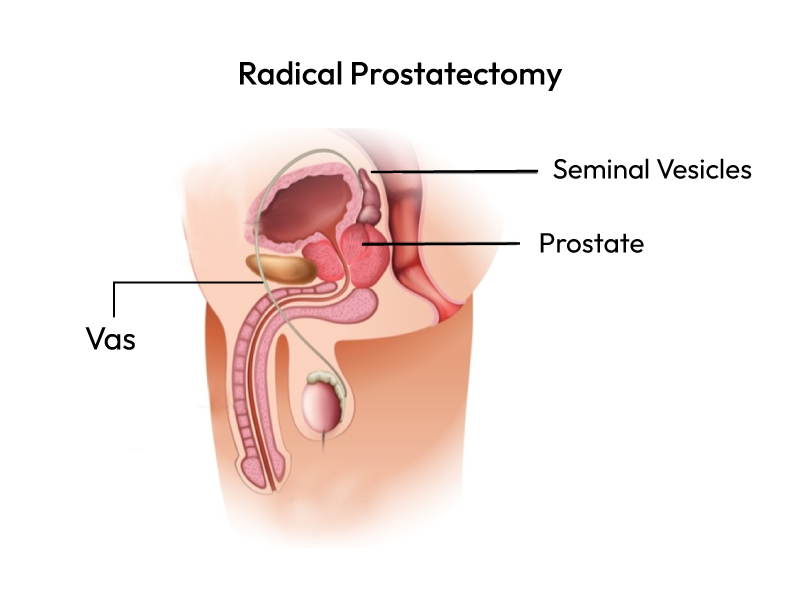
Radical Prostatectomy refers to the surgical removal of the entire prostate gland and nearby Lymph node tissues (Radical Prostatectomy). It is the gold standard for the treatment of localised prostate cancer. When the procedure is done through Robot-assisted technology, it is called Robotic Radical Prostatectomy (RARP). Most studies have shown that RARP is associated with the best oncological outcomes and urinary continence and sexual function rates when done by an experienced uro-oncologist. Worldwide, this procedure is done by urologists with a sub-specialisation in Uro-oncology.
Robotic prostatectomy in Ahmedabad is the preferred treatment for localized and locally advanced prostate cancer, as recommended by most medical guidelines. It is also suggested for select cases of metastatic prostate cancer, as studies have shown that it can improve cancer survival rates in stage 4 prostate cancer.
Radiotherapy
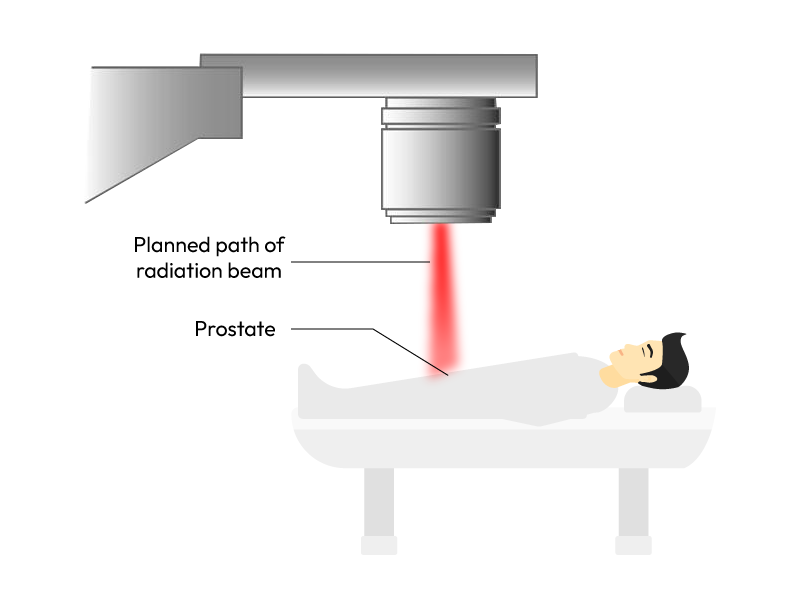
A urologist or Oncologist may also discuss Radiotherapy(RT) as an option for the treatment of prostate cancer, and it is often given in combination with Hormone therapy. Depending upon the stage of prostate Cancer, the treatment duration of RT is 4-6 weeks, and hormone therapy is usually 6 months to 3 years. Three types of Radiotherapy techniques are used: External beam radiation, Brachytherapy (Internal radiation), and Radiopharmaceuticals (radioactive element-containing medicines). All use radio waves to destroy cancer cells in the prostate gland or other parts of the body.
If you're looking for the best hospital in Ahmedabad for radiation treatment for prostate cancer, our team is here to guide you. At Ananta Urology and Robotics Clinic, the Best Hospital for Prostate Cancer Treatment in Ahmedabad, we provide the most advanced Radiotherapy for prostate cancer with the latest Radiation Machine.
Hormonal Therapy
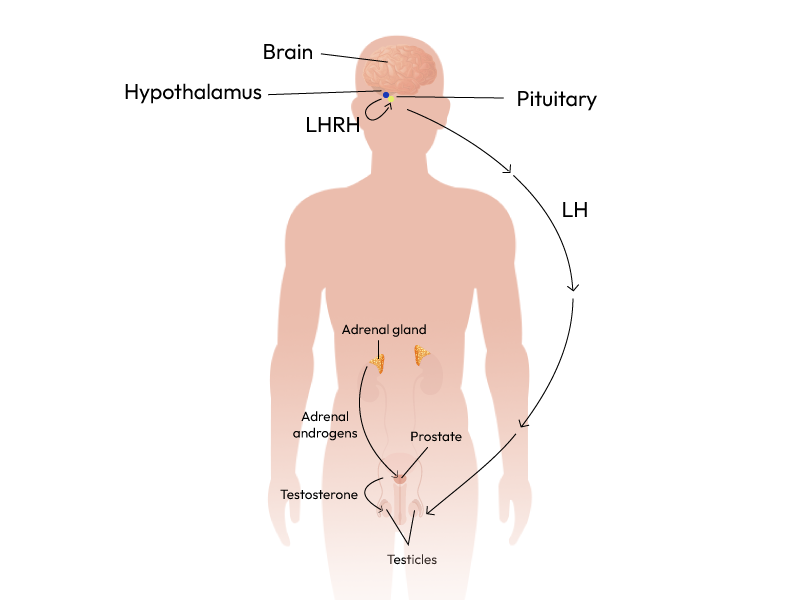
Hormonal Therapy (ADT) for Prostate Cancer is used to slow the growth of cancerous tissue and shrink the cancer cells. It focuses on lowering the amount or stopping the production of testosterone. ADT is given as either Medical Therapy injections or tablets (LHRH agonist, Antagonist) or surgical removal of testicles (Orchidectomy). It is a recommended treatment option in Stage 4 prostate Cancer, along with newer Drugs, ARIs, and chemotherapy, depending upon the extent of spread or volume of metastasis.
Benefits of Robotic Surgery for Prostate Cancer:
⦁ Improved cancer control with advanced precision.
⦁ Early restoration of urinary function.
⦁ Best nerve-sparing techniques for better quality of life.
⦁ Minimally invasive approach with reduced trauma.
⦁ Decreased risk of surgical complications.
⦁ Significantly reduced blood loss.
⦁ Shorter hospital stays for quicker recovery.
⦁ Optimized outcomes with minimal disruption to daily life.
Patient Testimonials About Dr. Rohan Patel - Prostate Cancer
Rajesh S., Ahmedabad
Vikram M., Gujarat
Anil P., Rajasthan
Frequently Asked Questions
Prostate cancer is generally a slow-growing cancer. Its growth rate can vary depending upon the Gleason’s Score, which ranges from 6 to 10. In most cases, it grows slowly and causes no symptoms for years, while others with a high Gleason’s Score( more than 8) can be more aggressive and spread more rapidly.
When prostate cancer is left untreated, it can grow and potentially spread (metastasize) outside the prostate gland. Untreated prostate cancer can lead to more severe health complications and a higher risk of mortality, particularly when the cancer is in advanced stages.
Although minimal, the treatment for prostate cancer can lead to various side effects, including urinary incontinence, fatigue, nausea, vomiting, diarrhoea, hair loss, etc. With proper follow-up and monitoring with your urooncologist, one can get relief from the side effects.
Robotic surgery for prostate cancer offers excellent outcomes, including improved cancer control, faster recovery, reduced pain, and better preservation of urinary and sexual function. It is one of the most advanced and effective treatments available for prostate cancer.
Most patients recover quickly and can resume normal activities within 2-3 weeks after robotic prostate surgery, although complete recovery may vary depending on individual factors.
Yes, robotic prostate surgery is highly safe and effective. With smaller incisions and advanced precision, it minimizes risks and enhances patient outcomes.
Prostate cancer is common due to risk factors, including age, family history, and genetic factors. It affects older men (65 years+), with age being a significant risk factor. Family history and genetic factors also play a role in its prevalence. These factors may lead to the higher occurrence of prostate cancer. Early consultation from a Urooncologist is recommended to detect it at an early stage.
The Robotic Radical Prostatectomy is a quick and precise procedure. After a Radical Prostatectomy, the phase can involve a recovery period with side effects for a short period. With time and appropriate care, many men restore their urinary control and sexual function, leading to a completely normal quality of life.


